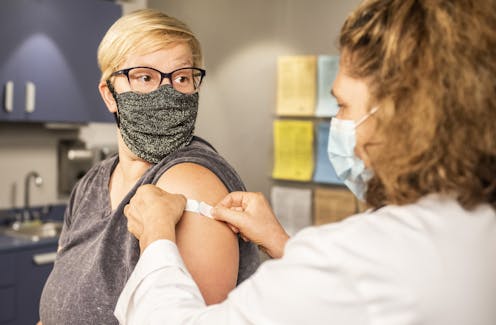To protect vulnerable Australians from COVID this winter, we need to pick up the pace on third doses
- Written by Peter Breadon, Program Director, Health and Aged Care, Grattan Institute

Anthony Albanese campaigned on better pandemic management[1]. Giving the vaccination program a shot in the arm will be his first test.
Not long ago, every shipment of vaccines was a news item and people were queuing around the block to get a jab.
Today, despite rising COVID cases and deaths, Australians seem to have lost interest. The vaccination rate for third doses has almost stalled[2].
Speeding up third doses will be critical to protecting Australians against Omicron variants as we move into winter. But without a focus on equal access, that protection will remain uneven.
Read more: COVID has killed 5,600 Australians this year and the pandemic isn't over. Ethics can shape our response[3]
Australia is losing the race
After a shaky start, Australia got near the top of the charts[4] for second dose coverage.
But only about half[5] the population has had a third dose. That puts us back in the middle of the OECD pack, and we’re falling further behind the leaders.
















